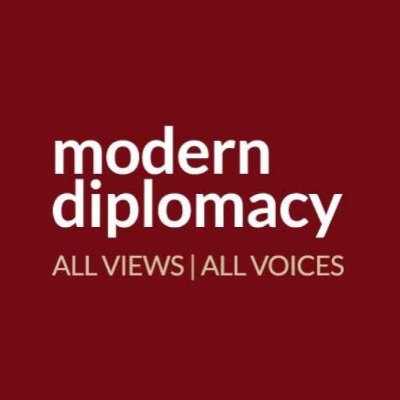 Modern Diplomacy Article Rating
Modern Diplomacy Article RatingChina's major-country diplomacy and the expectation for China's future diplomacy
- Bias Rating
10% Center
- Reliability
20% ReliableLimited
- Policy Leaning
10% Center
- Politician Portrayal
N/A
Continue For Free
Create your free account to see the in-depth bias analytics and more.
Continue
Continue
By creating an account, you agree to our Terms and Privacy Policy, and subscribe to email updates. Already a member: Log inBias Score Analysis
The A.I. bias rating includes policy and politician portrayal leanings based on the author’s tone found in the article using machine learning. Bias scores are on a scale of -100% to 100% with higher negative scores being more liberal and higher positive scores being more conservative, and 0% being neutral.
Sentiments
40% Positive
- Liberal
- Conservative
| Sentence | Sentiment | Bias |
|---|---|---|
Unlock this feature by upgrading to the Pro plan. | ||
Reliability Score Analysis
Policy Leaning Analysis
Politician Portrayal Analysis
Bias Meter
Extremely
Liberal
Very
Liberal
Moderately
Liberal
Somewhat Liberal
Center
Somewhat Conservative
Moderately
Conservative
Very
Conservative
Extremely
Conservative
-100%
Liberal
100%
Conservative

Contributing sentiments towards policy:
56% : The essential aspect of the new Chinese diplomacy emerges in the quest to gain a position in international organizations such as the United Nations, or a clear international position in the so-called "big four" allies during World War II.52% : What is new, from my point of view, in formulating China's new diplomatic policies in the new era, is China's constant endeavor to find new solutions, and despite China's attempt to maintain the golden principle that stipulates "non-interference in the internal affairs of other countries," it is, according to my perception There is discussion about the possibility of China "constructive interference" in the internal affairs of other countries at the request of the international community and with the approval of the countries concerned.
50% : According to my careful analysis - as an expert in Chinese political affairs - the most prominent thing that distinguishes Chinese diplomacy from others around the world is that the central government in Beijing and the leaders of the ruling Communist Party, led by Comrade Xi Jinping, rely on (Chinese foreign diplomatic policies that benefit China's internal policies), meaning that it (made foreign diplomacy an extension of its internal policies).
46% : From this standpoint, we find that there are commonalities between the first and second principles, as what applies to internal policies applies to foreign diplomacy.
42% : Not only that, but it also made foreign diplomacy a tool to enhance domestic policy.
*Our bias meter rating uses data science including sentiment analysis, machine learning and our proprietary algorithm for determining biases in news articles. Bias scores are on a scale of -100% to 100% with higher negative scores being more liberal and higher positive scores being more conservative, and 0% being neutral. The rating is an independent analysis and is not affiliated nor sponsored by the news source or any other organization.





















